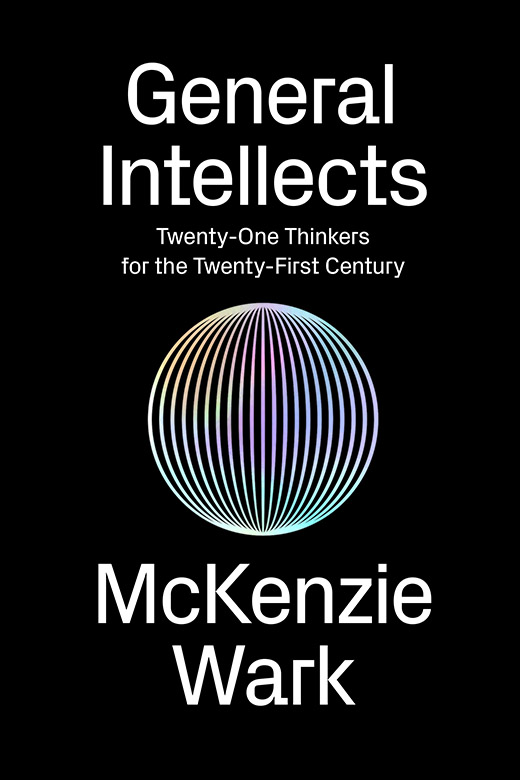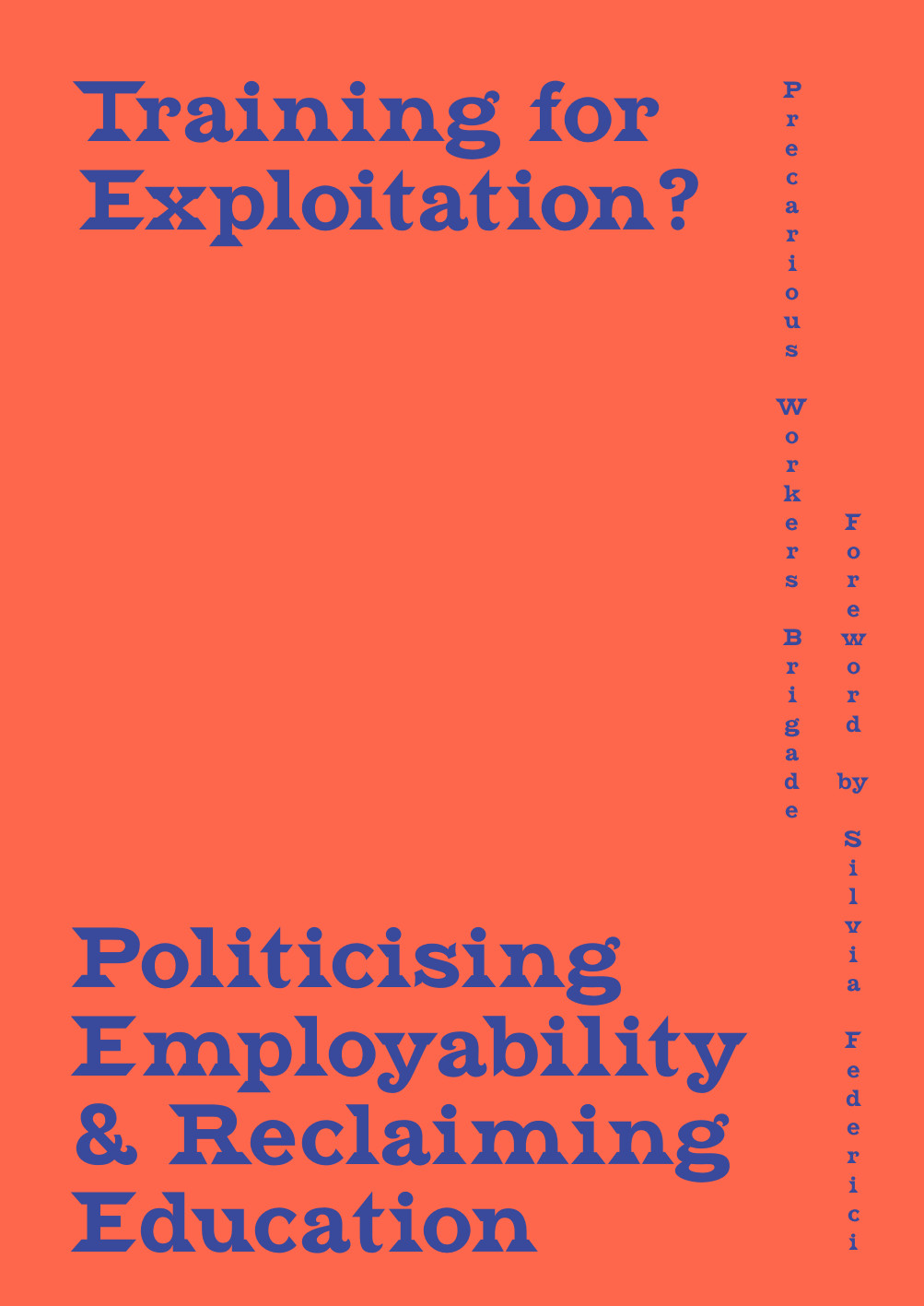McKenzie Wark: General Intellects: Twenty-One Thinkers for the Twenty First Century (2017)
Filed under book | Tags: · anthropocene, capitalism, communism, culture, labour, marxism, neoliberalism, philosophy, politics, technology, theory, work

“A guide to the thinkers and ideas that will shape the future
What happened to the public intellectuals that used to challenge and inform us? Who is the Sartre or De Beauvoir of the internet age? General Intellects argues we no longer have such singular figures, but there are, instead, general intellects whose writing could, if read collectively, explain our times. Covering topics such as culture, politics, work, technology, and the Anthropocene, each chapter is a concise account of an individual thinker, providing useful context and connections to the work of the others. McKenzie Wark’s distinctive readings are appreciations, but are nonetheless critical of how neoliberal universities militate against cooperative intellectual work that endeavors to understand and also change the world.”
The thinkers included are Amy Wendling, Kojin Karatani, Paolo Virno, Yann Moulier Boutang, Maurizio Lazzarato, Franco “Bifo” Berardi, Angela McRobbie, Paul Gilroy, Slavoj Žižek, Jodi Dean, Chantal Mouffe, Wendy Brown, Judith Butler, Hiroki Azuma, Paul B. Préciado, Wendy Chun, Alexander Galloway, Timothy Morton, Quentin Meillassoux, Isabelle Stengers, and Donna Haraway.
Publisher Verso, London, 2017
Public Seminar series
ISBN 9781786631909, 1786631903
viii+325 pages
HTML
See also extra chapters on Eduardo Viveiros de Castro, Nick Land, Sianne Ngai, Wang Hui, Amitav Ghosh, Yves Citton and Bruno Latour.
Silvia Federici: Revolution at Point Zero: Housework, Reproduction, and Feminist Struggle (2012–) [EN, ES]
Filed under book | Tags: · capitalism, commons, feminism, housework, labour, marxism, reproduction, women

“Written between 1974 and 2012, Revolution at Point Zero collects forty years of research and theorizing on the nature of housework, social reproduction, and women’s struggles on this terrain—to escape it, to better its conditions, to reconstruct it in ways that provide an alternative to capitalist relations.
Indeed, as Federici reveals, behind the capitalist organization of work and the contradictions inherent in “alienated labor” is an explosive ground zero for revolutionary practice upon which are decided the daily realities of our collective reproduction.
Beginning with Federici’s organizational work in the Wages for Housework movement, the essays collected here unravel the power and politics of wide but related issues including the international restructuring of reproductive work and its effects on the sexual division of labor, the globalization of care work and sex work, the crisis of elder care, the development of affective labor, and the politics of the commons.”
Publisher PM Press, Oakland, CA, and Common Notions, Brooklyn, NY, 2012
Creative Commons BY-NC-SA 3.0 Unported License
ISBN 9781604863338, 1604863331
188 pages
Reviews: Joshua Eichen (Mute, 2012), Nicholas Beuret (Red Pepper, 2012), Ashley Bohrer (spectrezine, 2012), Seth Sandronsky (Z Magazine, 2012), Dayna Tortorici (n+1, 2013), Laura Schwartz (Labor & Society, 2013), Emma Dowling (Feminist Review, 2014), Danielle DiNovelli-Lang (Alternate Routes, 2014), Marina Vishmidt (J Cultural Economy, 2015), Sutapa Chattopadhyay (Capitalism Nature Socialism, 2015), Leontina M. Hormel (Monthly Review, 2016).
Revolution at Point Zero (English, 2012, EPUB, MOBI)
Revolución en punto cero (Spanish, trans. Carlos Fernández Guervós and Paula Martín Ponz, 2013)
Precarious Workers Brigade: Training for Exploitation: Politicising Employability and Reclaiming Education (2017)
Filed under book | Tags: · collaboration, education, employment, labour, precarity, work

“This publication provides a pedagogical framework that assists students and others in deconstructing dominant narratives around work, employability and careers, and explores alternative ways of engaging with work and the economy. Training for Exploitation? includes tools for critically examining the relationship between education, work and the cultural economy. It provides useful statistics and workshop exercises on topics such as precarity, employment rights, cooperation and solidarity, as well as examples of alternative educational and organising practices. Training for Exploitation? shows how we can both critique and organise against a system that is at the heart of the contemporary crises of work, student debt and precarity.”
Foreword by Silvia Federici
Publisher Journal of Aesthetics & Protest Press, London / Leipzig / Los Angeles, 2017
Creative Commons BY-NC-SA 4.0 International License
ISBN 9780615590110
95 pages

